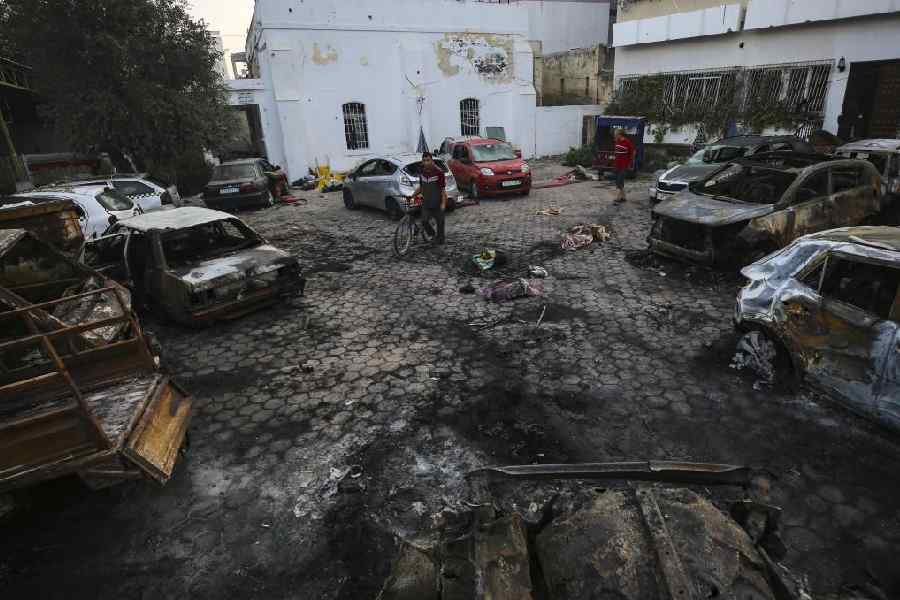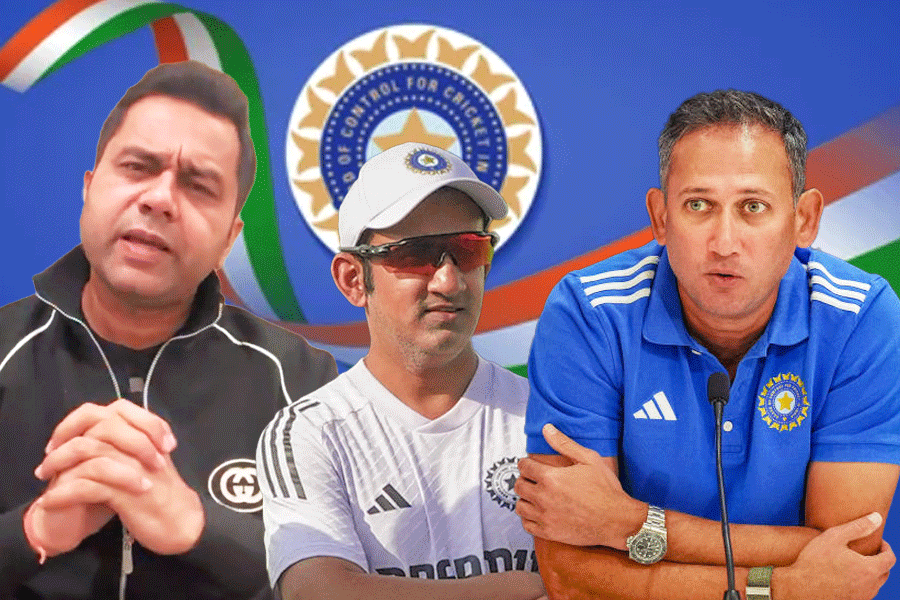Five days after Hamas accused Israel of bombing a hospital in Gaza City and killing hundreds of people, the armed Palestinian group has yet to produce or describe any evidence linking Israel to the strike, says it cannot find the munition that hit the site and has declined to provide detail to support its count of the casualties.
Within an hour of Tuesday night’s blast, the Hamas-run Gazan health ministry accused Israel of attacking the al-Ahli hospital, a medical centre in Gaza City where scores of families had been sheltering. The allegation was soon denied by Israel but quickly accepted and amplified by Arab leaders across West Asia, setting off unrest throughout the region. The claim was widely cited by international news outlets, including The New York Times, before Israel issued its denial.
But in the days since, as new evidence contradicting the Hamas claim has emerged, Gazan authorities have changed their story about the blast. Spokespeople have released death tolls varying from 500 to 833, before settling on 471.
The Hamas-run health ministry has also declined to release further details about those 471 victims, and all traces of the munition have seemingly vanished from the site of the blast, making it impossible to assess its provenance. Raising further questions about Hamas’ claims, the impact site turned out to be the hospital parking lot, not the hospital itself.
On Sunday, Hamas turned down requests by the Times to view any available evidence of the munition it said had struck the hospital, claiming that it had disintegrated beyond recognition. “The missile has dissolved like salt in the water,” Ghazi Hamad, a senior Hamas official, said in a phone interview. “It’s vaporised. Nothing is left.”
Salama Maroof, head of the Hamas-run government media office, said in a text message: “Who says we’re obligated to present the remnants of every rocket that kills our people? In general, you can come and research and confirm for yourself from the evidence we possess.”
For Palestinians, the accusation of Israeli responsibility for the blast has cemented the perception that Israel’s response to the Hamas-led terrorist attacks on southern Israel on October 7 has been disproportionate and vengeful. The Hamas-run Gazan health ministry says that Israeli strikes have killed more than 4,300 Palestinians, 40 per cent of them children, and the high reported death toll has undermined international support for Israel’s counterattack.
But to Israelis, the accusation that Israel hit the hospital is part of a grand deception aimed at undermining the legitimacy of Israel’s response to what officials say was the deadliest single attack on Jews since the Holocaust. Roughly 1,400 people were killed by Hamas’ raid on October 7, the vast majority of them civilians, and more than 200 people were abducted to Gaza.
Israel said the strike on the hospital parking lot was caused by a misfired Palestinian rocket, citing intelligence intercepts and videos of the sky above Gaza at the time. The Israeli military said the rocket was fired by Palestinian Islamic Jihad, an armed group in Gaza allied with Hamas, before malfunctioning in midair and exploding when its propellant caught fire upon hitting the ground.
“According to our intelligence, Hamas checked the report, understood it was an Islamic Jihad rocket that had misfired and decided to launch a global media campaign to hide what really happened,” Rear Admiral Daniel Hagari said.
The military also said Palestinian armed groups had mistakenly fired more than 550 rockets into their own territory since the war began more than two weeks ago. Palestinian groups have previously acknowledged that their rockets land in Gaza; a video last year showed one zigzagging through the air shortly after launch, before plummeting into a civilian area.
New York Times News Service











